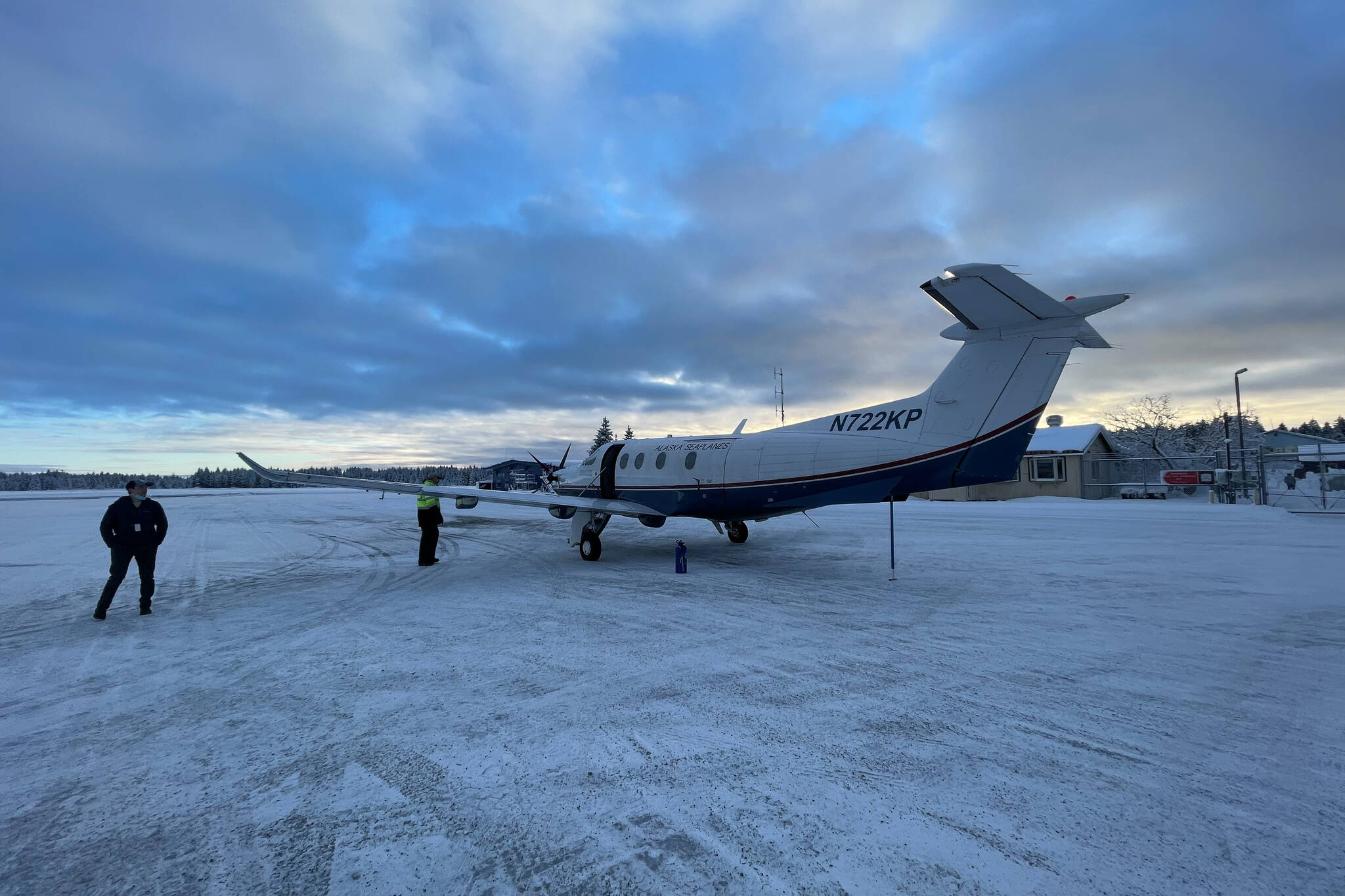A power issue causing a wind sensor to fail has stranded a number of travelers in Yakutat since last week.
Without the sensor, part of the Automated Surface Observing System, commercial flights on instrument flight rules like Alaska Airlines can’t use the runway, said Jeff Garmon, the meteorologist in charge of the National Weather Service office in Juneau.
“We’ve been trying to get our technicians up there for the last several days,” Garmon said in a phone interview. “Weather has been a challenge.”
[‘Find a passion and stay the course’: Burnham joins newest group of astronauts]
For those stranded there, the options for escape are chartering an aircraft or waiting until the wind sensor is fixed, said City and Borough of Yakutat city manager Jon Erickson in a phone interview. Yakutat only gets ferry service in the summer, when it receives two vessels a month. Without full ASOS functionality, Erickson said, Alaska Airlines, the only carrier that serves the small city, can’t land due to flight regulations.
“Alaska Airlines won’t land unless ASOS is operating 60 minutes before they land,” Erickson said.
Norton Gregory, who works for Tlingit Haida Regional Housing Authority, went up to Yakutat on what he intended to be a same-day return on Wednesday. Instead, with the sensor down, the Alaska Airline plane could only leave without passengers, due to Federal Aviation Administration regulations.
“I got a notification that my flight was canceled,” said Gregory in an interview Monday. “I watched as the plane got de-iced, the bird lifted off, and that was it. That was the last Alaska Airlines flight since Wednesday.”
While charter flights can make it to and from the town of fewer than 1,000 people without the ASOS operating at full functionality, it’s not inexpensive. Medical organizations have the resources to make sure those requiring medical attention are able to get to Anchorage, Norton said, but for him, it cost about $5,000 to get an Alaska Seaplanes charter from Yakutat to Juneau for him and eight other stranded travelers who bought in to help defray some of the cost.
“I’m glad we got out because I don’t know if there’s any flights in or out,” Gregory said. “I feel for those folks (in Yakutat). They’re pretty isolated. They’re pretty resilient. But they can’t get out right now. At least affordably. It’s the uncertainty. Not everybody has the ability to come up with five grand to secure one of these flights.”
Some flights to transport residents to Anchorage for scheduled medical care had to turn back due to inclement weather, Gregory said. The uncertainty about who to contact for accurate information was a problem as well, Gregory said. He made contacts with all members of the Alaska congressional delegation, noting that Sen. Lisa Murkowski was aware of the ongoing problem with Yakutat’s ASOS system and had asked some of the agencies involved for an update as recently as Dec 1.
“That was the second most concerning thing for me, that no one in leadership is taking a role in getting people up to date,” Gregory said. “There’s been no communication from Alaska Airlines saying ‘Hey, this thing is down, and we know it’s going to be down.’”
A spokesperson from Alaska Airlines confirmed that they weren’t able to provide service until repairs were done.
“We are prevented from flying into Yakutat due to the National Weather System equipment being inoperative and the current weather conditions,” said Alaska Airlines spokesperson Tim Thompson in an email.
Tickets for daily flights to Yakutat were still available as of Tuesday evening on the Alaska Airlines website.
Fixing the problem
According to an email sent to Gregory from the office of Rep. Don Young, the NWS ordered replacement parts on Friday, Dec. 3, as soon as they had identified the problem. The parts arrived in Juneau on Dec. 5; since then, foul weather in the Southeast has prevented the technicians and parts from getting to Yakutat, according to the FAA.
“This one has been a stream of really bad luck. It took us a few days to get a part we needed to effect repairs,” Garmon said in an interview Tuesday. “We’re going to have to get boots on the ground to effect repairs. We’re confident we’re going to be there in the next 24 hours.”
The ASOS system is a fairly standard piece of equipment. The Yakutat ASOS was installed by the NWS in 1995 at a cost of $424,000. Since then, components have been swapped out for repairs and preventative maintenance, Garmon said.
“The ASOS system is a pretty sophisticated piece of equipment,” Garmon said. “Alaska has the most extreme weather in the country, which puts a lot of wear and tear on these units quickly. There’s no way to avoid it. That’s why we have technicians that work on them.”
The NWS will be meeting with stakeholders in Yakutat in the upcoming year to try to find a way to build in redundancy and prevent these long outages, Garmon said. Some of the federal infrastructure money coming to Alaska could be used for this purpose, Gregory said. The FAA used to have personnel in place who could back up the instrumentation, Erickson said, but they’re no longer in place.
“We understand. We know they’re cut off,” Garmon said. “We do have a charter we think will get in tomorrow morning. We think it’ll be two-three hours to effect repairs if it is what we think it is.”
The NWS can be reached at 907-790-6802, for members of the public trying to get an update on the sensor, Garmon said.
• Contact reporter Michael S. Lockett at (757) 621-1197 or mlockett@juneauempire.com.

